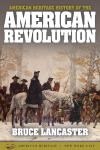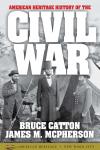Featured Articles
Thirty years later, an Oklahoma native reflects on one of the deadliest domestic terrorist attacks in American history.
What does history tell us about presidents who have tried to push the limits of the system?
As president, Dwight D. Eisenhower took a moderate position on many issues, believing that “good judgment seeks balance and progress.”
The Constitution is more than a legal code. It is also a framework for union and solidarity.
Classic Essays from Our Archives
“The Miraculous Care Of Providence” | February/March 1982, Vol 33, No 2
By James Thomas FlexnerGeorge Washington’s Narrow Escapes

Range Practice | Februrary 1968, Vol 70, No 3
By Dean AchesonOur former Secretary of State recalls his service fifty years ago in the Connecticut National Guard—asthmatic horses, a ubiquitous major, and a memorable
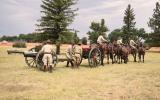
1619: The Year That Shaped America | Winter 2019, Vol 64, No 1
By James HornFour hundred years ago this year, two momentous events happened in Britain’s fledgling colony in Virginia: the New World’s first democratic assembly convened, and an English privateer brought kidnapped Africans to sell as slaves. Such were the conflicted origins of modern America.
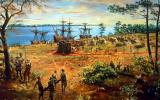
"The Sparck of Rebellion" | Winter 2010, Vol 70, No 3
By Douglas BrinkleyBadly disguised as Indians, a rowdy group of patriotic vandals kicked a revolution into motion.
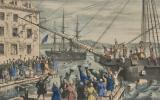
Did Sally Hemings and Thomas Jefferson Love Each Other? | Fall 2008, Vol 58, No 5
By Annette Gordon-ReedTo call it loaded question does not begin to do justice to the matter, given America’s tortured racial history and its haunting legacy.

Lincoln As Commander in Chief | Winter 2009, Vol 58, No 6
By James M. McPhersonEven though he had no military training, Lincoln quickly rose to become one of America’s most talented commanders.
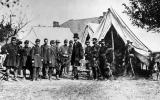
-
Fort Pulaski surrenders
-
Truman relieves MacArthur
-
LBJ signs Civil Rights Act of 1968

